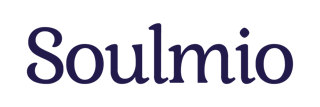Through the Eyes of the Experts: How Gen Z is Changing the Workplace
May 27, 2025

Generation Z enters the labour market with different expectations and priorities than their predecessors. They are looking for meaningful work, work-life balance and an authentic company culture. How is this generation changing the ways in which companies approach the workplace and management?
Who shared with us their erspective on Gen Z at work?

Simona Zábržová, CEO Soulmio




What does Generation Z expect?
Generation Z perceives the work environment differently than their predecessors. As Simona Zábržová, CEO of Soulmio, confirms, young employees place emphasis on flexibility, meaningful work and work-life balance. "Compared to older generations, who often valued stability and minimal change, autonomy, rapid career growth and the ability to work from anywhere is key for Gen Z. They expect open communication, regular feedback and an inclusive company culture," she explains.
According to Zuzana Mikulová, former HR Director at LMC, young candidates today are looking for work that gives them meaning and allows them to use technology effectively: “The younger generation doesn't want to work themselves to death as the older generations did, but that doesn't mean they don't want to work. They just want to work differently, more efficiently. And, of course, they want to use technology as much as possible, because they are digital natives."
Companies that want to be attractive to Generation Z should therefore offer hybrid or fully remote working, provide meaningful projects and invest in the personal development of their employees. Mental health is also an important aspect, as Kristýna Cetkovská, a corporate psychologist, confirms: "Taking care of mental health and life balance are key for this generation. They are willing to prefer an employer who respects this need. If they feel mentally well, they can perform better at work."
What steps should companies take to work effectively with this generation?
- Offer flexibility - hybrid or remote working, optional working hours.
- Create meaningful work - Gen Z wants to see their efforts have an impact.
- Improve internal communication - transparency and regular feedback are key.
- Invest in development - mentoring, fast-track career paths and training opportunities.
- Promote mental health - work-life balance, openness around wellbeing.
New challenges for managers
Company management is adapting to new demands. "Leaders are no longer just authoritative managers, but rather mentors and guides. Agility, transparency and regular feedback are important." Kristýna Cetkovská adds that Generation Z openly communicates topics that were previously considered taboo: “Managers are not always prepared for younger colleagues to openly discuss healthy work boundaries, well-being or mental health.”
One of the phenomena that is emerging in relation to Generation Z is ‘quiet quitting’. Simona Zábržová does not see it as laziness, but rather as a natural reaction to a rigid work culture.
One of the most common mistakes companies make is undervaluing the voice of young employees. According to Mikulová, the key is to listen to them and involve them in decision-making processes: “Companies should not be afraid to involve the young generation in decision-making processes. An example is Česká spořitelna, which has created a Shadow Board of young people to bring its strategy closer to young people."
How to keep up with the digital natives?
Adam Kulhánek, an adictologist and corporate well-being expert, points out that Generation Z has grown up with digital technology and is naturally adaptable to new platforms. "They can quickly navigate different online environments, are efficient at multitasking and are good with audiovisual content. On the other hand, the rapid consumption of social networks significantly splits attention and leads to procrastination."
At the same time, there is a risk of digital fatigue, which has been exacerbated by the pandemic. "Long hours in front of a screen lead to mental exhaustion, back and eye pain, and sleep problems. Therefore, it is crucial to introduce breaks, ergonomic workplaces and offer relaxing activities such as sports, meditation or chill out zones," Kulhánek recommends.
AI as an opportunity and a threat
Honza Kleindienst from MAMA AI describes the relationship of Generation Z to artificial intelligence. “They expect AI to help them get rid of routine tasks and allow them to focus on creative and strategic activities. At the same time, however, they are aware of the risks, such as job loss or misuse of AI in decision-making processes.” According to him, companies should emphasize that AI is not a replacement for employees, but rather a tool for increasing efficiency and developing talent.
Kleindienst also draws attention to the different communication style of Generation Z. “They prefer fast, informal and asynchronous communication. Instead of emails, they prefer chat applications, voice messages or short videos. Companies should reflect this in their internal processes.”
How are companies adapting to the needs of Generation Z? And what are they still missing?
Kristýna Cetkovská is clear: “Intergenerational differences in the work environment are similar to any other differences between people. From my discussions, it is clear that many people lack mutual respect above all. The key is to understand that we all have different values and approaches to work. Instead of confrontation, we should strive for a discussion aimed at a common goal. So it is not just about “adapting to the younger generation”, but creating a space for open debate across teams and the entire company. And it is precisely this space that companies often still lack or do not pay sufficient attention to. On the other hand, more progressive companies are already actively introducing tools, such as reverse mentoring, that can help bridge intergenerational differences and promote mutual understanding”, she lists specific points for improvement.
“The current generation lives in a very fast-paced world. Young people have everything available immediately – from information to entertainment. On the one hand, they are overwhelmed by online content, on the other hand, they are constantly looking for instant experiences. Disconnecting, stopping for a moment and being here and now can be really challenging for them. This can negatively affect their motivation and perseverance in relation to work and career building. Traditional employment is not a priority for many GenZ representatives. It will be all the more important for this generation to be able to integrate self-help techniques in the field of mental health into their lives,” adds Kulhánek.
The future of the work environment
Generation Z is changing work culture towards greater flexibility, equality and well-being. As Kulhánek sums up: “Work is not a priority in their lives. They do not want authoritarian managers, rigid rules or excessive pressure to perform. Authenticity, meaningful work and personal freedom are more important to them.”
Zábržová confirms a similar experience from her time in corporate management: “Maximum work freedom is an increasingly popular trend. It does not matter where an employee works from, the key is that they complete their tasks on time and with quality. Freedom goes hand in hand with responsibility – whoever demands it must also be able to handle it.”
Kleindienst, in turn, draws attention to the key aspect of AI complementing corporate culture. “In my opinion, Gen Z wants to work mainly where effective communication is supported by a creative atmosphere and a family approach.”
Companies that do not adapt to this trend will face a talent drain. Employer branding must focus on strong values, support for well-being and a modern approach to people management. Mentoring programs, buddy systems and a greater emphasis on employee mental health can play a significant role.
Generation Z is becoming the driver of fundamental changes in the work environment. And companies that understand and embrace these changes will have a great competitive advantage.
GEN Z terms and trends:
- Work-life balance: Generation Z places great emphasis on work-life balance. They expect flexible working hours and remote work options.
- Hybrid / Remote work: Working from home or a combination of office and remote work is the preferred employment model for Gen Z.
- Meaningful work: Younger employees want to work on projects that have a positive impact on society, the environment or the community.
- Diversity & Inclusion (D&I): Generation Z expects equal opportunities, an inclusive environment and support for diversity in the workplace.
- Quiet quitting: The trend where employees only work within their job scope without unnecessary overtime or extra initiative if they are not fairly rewarded. Simona Zábržová comments on this trend: “Quiet quitting” is not laziness, but rather a rejection of a toxic work culture that expects constant overtime and performance beyond the scope of the job scope without adequate recognition. This is a signal that companies should rethink their approach to employees. The “suck it up, fire it” model simply won’t work. Companies should focus on building fair conditions where people don’t feel the need to passively defend themselves from burnout.
- Real-time feedback: The younger generation expects regular and constructive feedback instead of traditional annual performance reviews.
- Agile leadership: A management style focused on flexibility, rapid adaptation, and collaboration that is more appealing to Gen Z than rigid hierarchical structures.
- Microlearning: Short and interactive forms of education (e.g., e-learning, videos, podcasts) that fit this generation’s learning style.
- Value-driven company culture: Employers must have clearly defined values that reflect ethics, sustainability, and social responsibility.
- Mentoring and career growth: Gen Z wants a clear path to growth and appreciates having senior colleagues help them with their professional development.
- Digital nomadism: Many young people prefer the ability to work from anywhere, which is related to the development of digital technologies and work flexibility.
- Well-being programs: Employers must consider employee mental health, offering support in the areas of stress, burnout and overall well-being.
- Authenticity and transparency: Gen Z expects company management to be honest, open and to support a real company culture, not just “PR slogans”.
- Employee experience personalization: Employers are increasingly adapting benefits, training or working conditions to the individual needs of employees.
- Sustainability & Green jobs: The younger generation is concerned about the environmental impact of companies and prefers employers that have sustainable strategies and a responsible approach to the environment.



